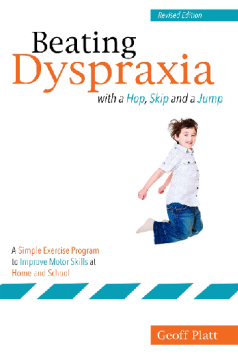
Additional Information
Book Details
Abstract
Geoff Platt's exercise program, tailored to help children with dyspraxia to overcome their symptoms, enjoy physical activities, and become as active as their friends and classmates, is now proven to be even more effective.
This revised edition outlines the fun and easy-to-teach program, which focuses on familiar activities such as running, jumping and ball play, and explains how regular exercise routines can reduce weakness and improve motor skills, such as balance, timing and coordination. It includes extra session plans, incorporates new research, and adds a secondary stage to the exercise program, teaching the skills of praxis, planning movement and improving skills.
This practical guide will be an essential resource for Physical Education teachers and non-specialist teachers of recreation and games classes who are looking to help children with dyspraxia to reduce weakness and improve motor skills, as well as parents.
This is a revised version of Platt's popular guide to physical activities and dyspraxia. Coming from a Sport Science background, Platt has a PhD based on exercises for children with this difficulty and the book provides a guide to proven interventions to improve children's ability to improve balance, timing and coordination. Platt also stresses the social importance of being able to interact with other children in physical activities.. The programme includes activities such as running, hopping, bench stepping over a 30-minute period on a daily basis in the primary school... A useful and practical resource.
Mary Mountstephen, author, editor
SEN Magazine
Geoff Platt, PhD, has worked as a lecturer in Sport Science for over thirteen years, most recently working as a senior lecturer and course director in Sports Coaching Science and Sports Analysis and Coaching at Kingston University, London. He has lectured on Olympic Solidarity Courses on behalf of the International Olympic Committee and is the Director of Coaching for Weightlifting in Wales, Scotland and Northern Ireland. He has completed a PhD for which he carried out extensive research into strength exercises for children with dyspraxia. Geoff lives in Edinburgh, UK.
